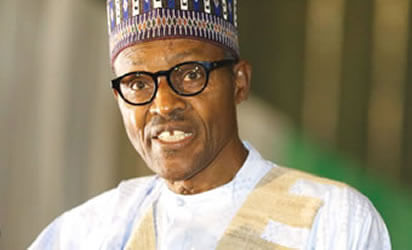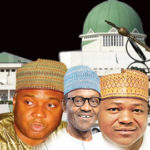While it is true that Nigerians should be concerned about mounting public debts, they should take solace in the fact that such debts are being used to catalyse economic growth and development, which will, in turn, lead to increased production that would eventually be used to offset the loans.
Director-General of Debt Management Office (DMO), Abraham Nwankwo, said in Abuja, at the weekend, that during a period of recession, there was the need for government to borrow to finance infrastructure and that foreign loans were much cheaper than borrowing from domestic sources.
“The two things to say is, first, there is no doubt that Nigerians are right in asking questions and getting concerned about value for money and about how we get proceeds from what we use.
“The concerns are valid, correct and appropriate, nobody should doubt that and the important thing to say is that in every system where there is a failure, there are people responsible for tracking why there is failure and for doing the monitoring for effective and appropriate sanctions if there are needs for sanctions.”
According to him, Nigerians should look back at the needed infrastructure that have been financed by recent loans obtained both locally and internationally.
“Over the past four or five years, the Abuja Airport road was expanded from four to 10 lanes and same with Abuja-Kubwa-Kaduna road. These two projects were actually funded with money borrowed domestically.
You are aware that the Nigerian rail lines are being resuscitated with new locomotives purchased, and Lagos, Ibadan, Kano rail lines have been fully resuscitated. These were done with external borrowing. These are some of the examples, on routine basis and on a permanent basis.
“You are aware of the various agricultural projects, some are mainly funded by the World Bank and some of them in some areas are called FADAMA and some of them are still existing in all parts of the country. All those projects are funded with borrowed money.
“You are aware of the polio eradication programmes, those are funded with borrowed money from IDA in particular, that is the concessional window of the World Bank. You are aware of the various rural water supplies; these are funded with money borrowed from the multilateral sources. These are some of the major popular projects funded from borrowings,” Nwankwo said while citing examples.
He also gave the assurance that generally, however, all the monies borrowed from external sources were projects tied and explained that the World Bank, for instance, did not give loans without supervising it themselves.
“They must supervise it themselves and they must have people working with the Nigerian team to monitor the project from the beginning to the end. They don’t just disburse the money and walk away, they disburse the money as the work progresses. So, even when Nigeria seeks for a loan and it is approved, the disbursement of the loan is done according to the schedule of the work itself,” he explained.
He described the current N16 trillion debt profile of Nigerian governments as still within manageable limits, saying it was just 12.24 per cent of the gross domestic product.
“We are very comfortable, but we also accept that we have a challenge with our domestic debt service because of the high cost of fund domestically.
“This is one of the reasons why there is need for us to see that if we must borrow, as we must borrow, it is necessary for us to see how much we can conveniently borrow from external source since that will help reduce the domestic cost of funds, because when the demand from the domestic market by government drops, it means whatever resources are available, it is there for the private sector.
“And because the demand pressure is lower, the cost will be lower too. That’s one of the strategy of government and that’s one of the reasons why borrowing from the external source is encouraged.”
Responding to suggestions that government should rather support the private sector to borrow funds to develop infrastructure, the DMO boss agreed, but insisted that government would not leave infrastructure development entirely in the hands of the private sector.
“Our position is that government should develop infrastructure and government is exploring all options in doing that. In order to fund infrastructure, government is encouraging the private sector through Public Private Partnerships (PPP), through concessioning, through Build, Operate and Transfer, through guarantees but that doesn’t mean there is any country where all the infrastructure will be funded by the private sector.
“There must be some component of infrastructure that must be funded by the government because the private sector does not find it attractive at that point in time. Government is not excluding the private sector from participating in infrastructure funding. Rather, it is encouraging them, but government also appreciates that there must be part of the infrastructure, which it must fund at least at this point in time.”
He then gave assurance that once the loans are deployed properly, it would not be difficult to repay.
“You are borrowing to turn around the economy, to have efficient rail and road transportation, efficient and reliable power supply, that’s why we’re borrowing. We are not borrowing for borrowing sake. You want to transform the economy by covering the infrastructure deficit and if you do that, the cost of production in the economy will fall, so beyond inflation and all those issues like infrastructure deficiency, we will deal with them.
“Moreover, if you have sufficient infrastructure, it helps to diversify both export and domestic supplies. We import most of our goods, some of which we produce locally but the imported ones are cheaper but if the cost of production falls because of reliable and efficient infrastructure, the cost of production falls, so the final products from Nigerian factories will be low, Nigerians can now buy the cheaper ones and that boosts the economy.
“On the other hand, the fact that you are producing competitively at cheap cost here means you can even export beyond West Africa, because you can now compete just as China is producing at cheap prices and bringing them here, we can also produce at cheap prices and sell to other countries.
“When you start exporting to other countries, of course you will start earning more foreign exchange. If you’re exporting five or seven export products and, in addition, you are exporting maybe three, four or five solid minerals, which belong essentially to government.
“With that type of diversification, all of the private sector export of solid minerals, in addition to oil and gas, if we build infrastructure in the next five to seven years before those loans mature in 15 to 30 years, we should be in a position to service our debt and you would have turned around the economy.”
WATCH TOP VIDEOS FROM NIGERIAN TRIBUNE TV
- Relationship Hangout: Public vs Private Proposals – Which Truly Wins in Love?
- “No” Is a Complete Sentence: Why You Should Stop Feeling Guilty
- Relationship Hangout: Friendship Talk 2025 – How to Be a Good Friend & Big Questions on Friendship
- Police Overpower Armed Robbers in Ibadan After Fierce Struggle






